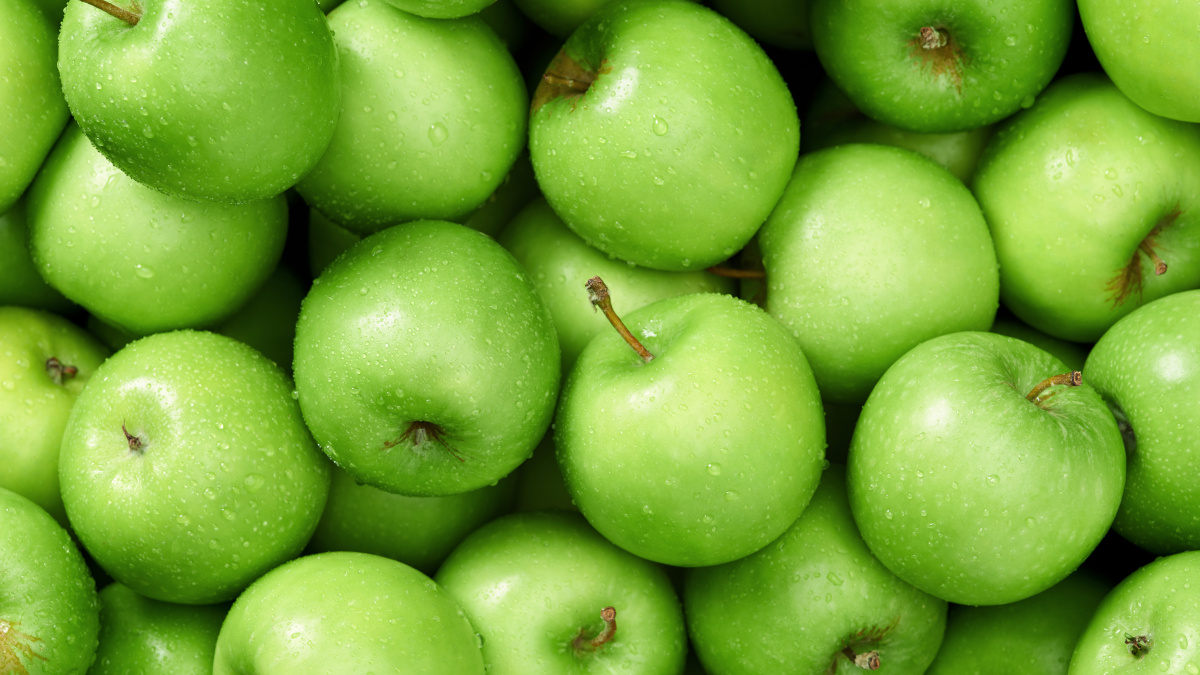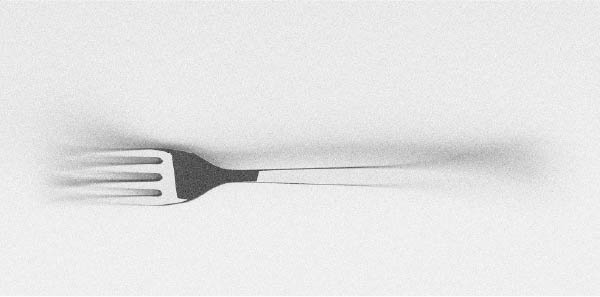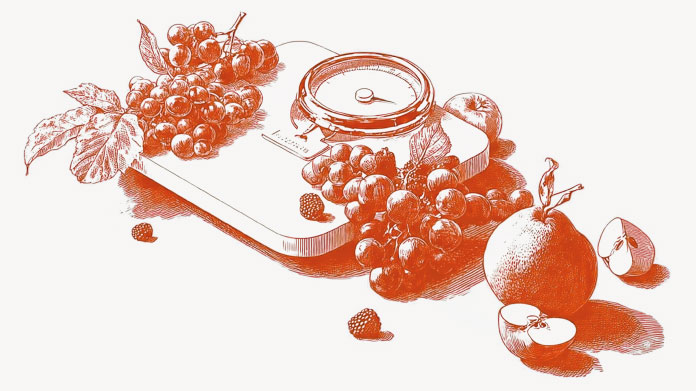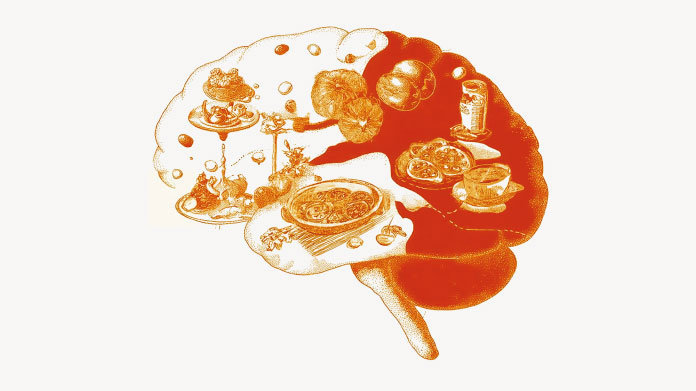Mono diets – apples, bananas, etc. What results can you expect?
Eating one type of food (apples, bananas, grapes, wholegrain rice, etc.) for several days in order to lose weight and detoxify the body? Discover whether the monodiet is worth following or not.

Monodiet: definition
As the name suggests, a monodiet, or monotrophic diet, consists of eating just one food for several days at a time.
In practice, those following a monodiet eat enough of a single food throughout the day to sate their hunger, usually for a maximum of 3 days .
The monodiet is accompanied by increased consumption of teas, infusions, flavored waters, etc, the only proviso being that these extra fluids do not contain added sugar. So in theory, this means no kefir or kombucha.
The most common food choices for a monodiet are apples, bananas, grapes and wholegrain rice but you could theoretically choose any basic non-processed food (potato, sweet potato, peach, apricot, quinoa, etc.)
The monodiet for weight loss?
Monodiets became popular in 2016 after an American magician published a book describing how he lost 10 kilos in 5 weeks by only eating potatoes (1).
Since then, this type of diet has grown in popularity among those wishing to achieve rapid weight loss – despite warnings from nutritionists.
In actual fact, the monodiet is similar to fasting, in that after the first 24 hours, the body draws primarily on its reserves of glycogen, a form of carbohydrate found mainly in the muscles and liver, to meet its needs. It also draws on muscle – its major protein reserve, and to a lesser degree, adipose tissue (2-3).
In addition, a monodiet usually triggers a significant loss of water. On balance then, the weight loss achieved as a result of following a monodiet for 2 to 3 days is essentially related to loss of glycogen, water, muscle and, to lesser degree, fat. It is therefore not a good diet for achieving weight loss.
To lose weight, you need to eat a balanced diet which both provides all the macronutrients and micronutrients you need and at the same time, induces a slight calorie deficit. Taking exercise as well will obviously help too.
Risks associated with a monodiet
This is all the more important as a monodiet poses a number of risks to health. The first of these is excess fructose when the chosen food is apples, bananas or other fruit.
In fact, to stay fit and have enough energy, you need to eat 1600 kcal a day which would mean consuming, for example:
- 3kg of apples, providing 180g of fructose;
- or 1.8kg of bananas, providing 126g of fructose;
- or 2.4 kg of grapes, providing 190g of fructose;
- etc.
Yet the adverse effects of too much fructose start to appear at 100g a day in a healthy adult, and at just 60g a day in a type 2 diabetic.
What’s more, digesting fructose can often cause diarrhea, flatulence and bloating, particularly in people who have trouble absorbing it and in older individuals, as digestibility of fructose decreases with age (5).
Most importantly, fructose consumption leads to the production of fatty acids by the gut which results in raised triglyceride levels in the blood. In addition, excessive fructose consumption promotes fatty liver (6).
It’s clear then that relying exclusively on fruit to meet your calorie needs produces the same effects as alcohol consumption. Not exactly what you want from a detox …
What’s more, a monodiet does not provide the macronutrients or micronutrients necessary to maintain good health: protein, fats, minerals, trace-elements, omega-3, etc.
There’s no problem with occasionally following a monodiet for the odd meal or two, or for a whole day, in order to give your digestive system a rest. But to eat one type of food for several days, even if that food is intrinsically healthy, amounts to dietary madness.
Is the monodiet a good way to detox?
It’s claimed that a monodiet offers the additional benefit of detoxifying the body. The reasons given are that a monodiet allows the gut and liver to rest and to get rid of toxins produced as a result of digestion.
But when your body’s functioning well and you’re eating a balanced diet, there’s absolutely no need to follow a ‘detox’ diet.
And as we’ve seen, fruit-based monodiets actually have an adverse effect on the liver and blood triglyceride levels.
Yet again, the best way of thoroughly ‘cleansing’ your system and detoxing your body is to eat a healthy, balanced diet free from processed foods and low in refined sugars. An acid-base diet is perfect in this respect.
And if you’re looking for a helping hand when it comes to the health of your liver, you’re best off taking Liver Support Formula, which contains artichoke (Cynara scolymus), Chlorella algae and milk thistle (Silybum marianum), all of which are good for liver health (7-9) as well as Picrorhiza kurroa royle, recognized for its liver-protective effects (10). You could also choose a supplement containing desmodium, part of the Fabaceae family, also recognized for its hepatoprotective properties (11).
References
- Penn, Jillette, « Presto ! How I made over 100 pounds disappear and other magical tales »
- MAUGHAN, R. J., FALLAH, J., et COYLE, E. F. The effects of fasting on metabolism and performance. British journal of sports medicine, 2010, vol. 44, no 7, p. 490-494.
- JENSEN, Michael D., EKBERG, Karin, et LANDAU, Bernard R. Lipid metabolism during fasting. American Journal of Physiology-Endocrinology And Metabolism, 2001, vol. 281, no 4, p. E789-E793.
- http://ceed-diabete.org/blog/le-fructose-ange-ou-demon/
- DORNAS, Waleska C., DE LIMA, Wanderson G., PEDROSA, Maria L., et al.Health implications of high-fructose intake and current research. Advances in nutrition, 2015, vol. 6, no 6, p. 729-737.
- WANG, D. David, SIEVENPIPER, John L., DE SOUZA, Russell J., et al.Effect of fructose on postprandial triglycerides: a systematic review and meta-analysis of controlled feeding trials. Atherosclerosis, 2014, vol. 232, no 1, p. 125-133.
- KRAFT, K. Artichoke leaf extract—recent findings reflecting effects on lipid metabolism, liver and gastrointestinal tracts. Phytomedicine, 1997, vol. 4, no 4, p. 369-378.
- SHIM, Jae-Young, SHIN, Hye-seoung, HAN, Jae-Gab, et al.Protective effects of Chlorella vulgaris on liver toxicity in cadmium-administered rats. Journal of medicinal food, 2008, vol. 11, no 3, p. 479-485.
- SUCHÝ, P., STRAKOVÁ, E., KUMMER, V., et al.Hepatoprotective effects of milk thistle (Silybum marianum) seed cakes during the chicken broiler fattening. Acta Veterinaria Brno, 2008, vol. 77, no 1, p. 31-38.
- VAIDYA, A. B., ANTARKAR, D. S., DOSHI, J. C., et al.Picrorhiza kurroa (Kutaki) Royle ex Benth as a hepatoprotective agent--experimental & clinical studies. Journal of Postgraduate Medicine, 1996, vol. 42, no 4, p. 105.
- KALYANI, G. A., RAMESH, C. K., et KRISHNA, V. Hepatoprotective and antioxidant activities of Desmodium triquetrum DC. Indian journal of pharmaceutical sciences, 2011, vol. 73, no 4, p. 463.
Keywords
1 Days
First bottle has been finished
First bottle has been finished. 2 bottles remaining for 3 month time frame trial as recommended
CORCORAN Pamela
6 Days
repeat customer
recommended by my doctor. easy to create an account. Discounts and specials are appreciated. packaging and delivery is dependable. Capsules easy to digest. I've had some some capsules and tablets that are broken inside their bottles.
Kokee
10 Days
Order was shipped on time and packaged…Wonderful Jobs!
Order was shipped on time and packaged excellently.
DMHoge
17 Days
great products and prices
great products and prices
Marie
22 Days
Easy to navigate site
Easy to navigate site, had what I was searching for, good price. easy order-check out
James Tucker
29 Days
My skin is clearing up nicely!
Pretty good for my skin so far.
Christian
31 Days
The new packaging is excellent
The new packaging is excellent - finally! No more squashed boxes and torn envelopes.
GORAN
32 Days
Great Product
Great Product
Larry Garrett
36 Days
Quick shipping
Quick shipping; good price. No issues!
Mary McCarty
37 Days
Thr product is very good and is helping…
Thr product is very good and is helping me on my health. Then is always on time
LUGO Luz
40 Days
Buying was fine
Buying was fine. I had problems with the website not recognizing my login info, and had to call to get it fixed. Other than that, everything was good.
David S. Clark
40 Days
Your super maca and super ginseng are…phenomenal
Your super maca and super ginseng are phenomenal supplements that compliment each other when taking them together. Fantastic feeling of well-being and lots of mid day energy without the crash.
Keith Mason
43 Days
I have had amazing results with every…
I have had amazing results with every supplement I've purchased. I am extremely satisfied with this company
kirstin Torres
43 Days
Fine products
Fine products . They are on the leading edge of online supplements. The only issue -so far-is they sometime run out of subscription items.
Jason Argos
46 Days
The ordering process is very user…
The ordering process is very user friendly and the products always come in a timely manner.
CARTER Rhonda




